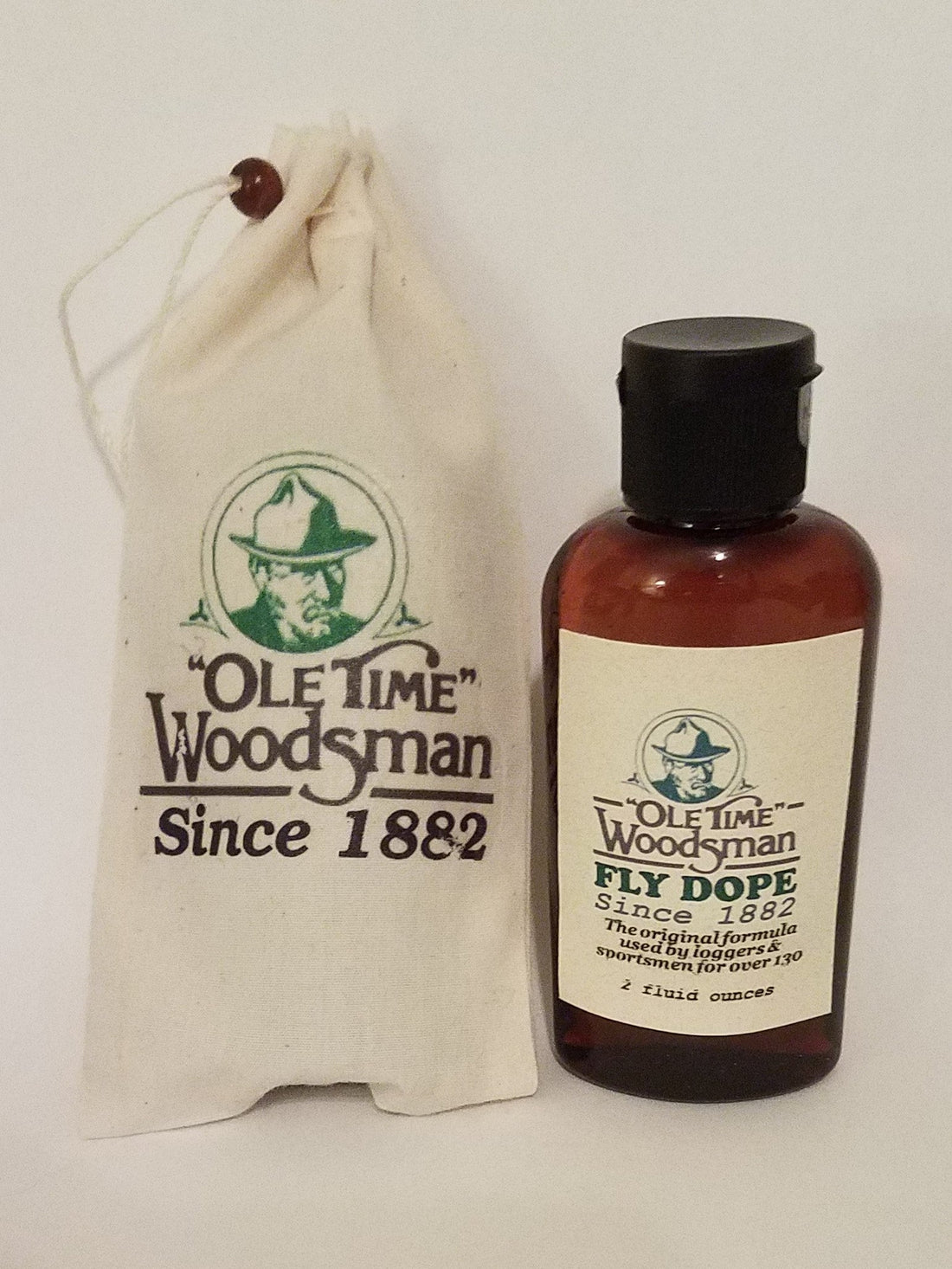Black flies, like all biting insects, are attracted to your carbon dioxide flume when you breathe. If the instructions on any black fly repellent tells you to cover yourself with whatever chemicals are in the spray can, it just will not work! The hordes of blood sucking black flies will still be swarming around your head waiting for the buffet to open.
Today, science has proven that mosquitoes, black flies, no see um, chiggers, minges, deer flies, and ticks are all attracted to one thing......the carbon dioxide flume that all humans and animals exhale when they breathe! (Research the Research) And, science has also proven that certain fragrances will interfere with an insect's ability to detect carbon dioxide. Go figure!
"If they cannot find you, they cannot bite you!" says Ole Time Woodsman Fly Dope!
Back in 1910, when fly fisherman Obie Sherer was being chased from his favorite fishing hole in Maine by a hungry horde of black flies that he noticed a local Native American sitting peaceably by the stream without a biting insect in sight! Now this was way before chemical bug repellents became in vogue. Deet was not patented until 1946.
Somewhere in his mind, either by chance or his love of fly fishing, Obie reckoned that a particular blend of natural fragrances from living in the woods could protect a person from biting insects! Using a base formula that hunters in the day applied to themselves to camouflage their human scent, Obie developed a product that he called Ole Time Woodsman Fly Dope. Soon thereafter a logging foreman saw Obie peaceably fishing in his favorite spot. A handshake contract was made and the first commercial batch of Fly Dope was sold.
|
||||
|
Just took this camping this weekend, put some on a bandana just like when I was a kid. Not a bite! Thank you! |

